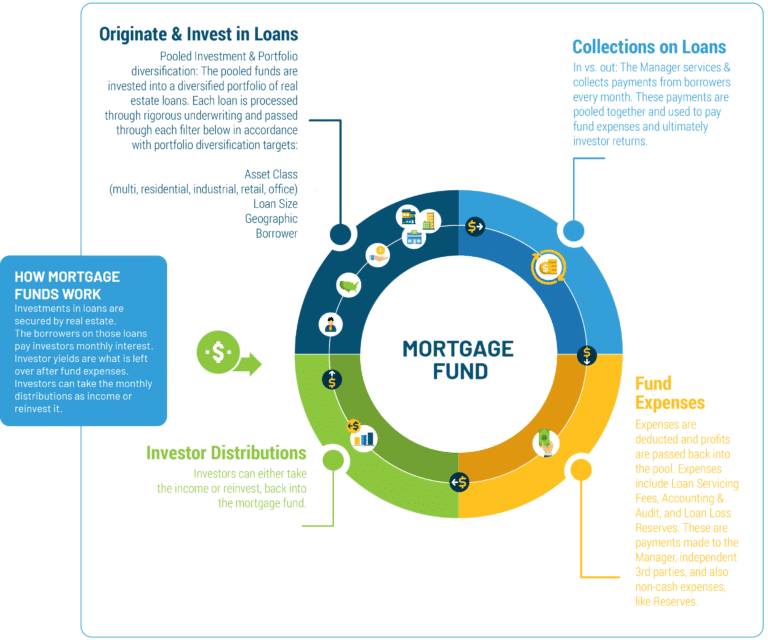When to Use Georgia hard money lenders for Flipping Projects
The Function of Hard Cash Loans in Real Estate Deals: What You Need to Know
Difficult money finances are an essential funding device in realty transactions. They provide investors fast accessibility to resources, especially in urgent situations. Protected by real estate, these loans focus on property value instead than the borrower's credit report. They come with significant risks and expenses. Recognizing the nuances of tough cash financings is essential for any person seeking to browse this complex financial landscape effectively. What variables should capitalists consider prior to proceeding?
What Are Difficult Cash Loans?
Hard money car loans work as a crucial funding choice in realty transactions, especially for capitalists looking for quick accessibility to capital. Unlike standard lendings, difficult cash car loans are safeguarded by real estate and are largely based on the worth of the property as opposed to the consumer's creditworthiness. These car loans are commonly offered by private lenders or financiers, making it possible for customers to bypass lengthy authorization procedures related to standard funding.
Difficult money finances are frequently temporary solutions, with payment periods ranging from a few months to a few years. Because of their expedited nature, they are popular among actual estate flippers and those requiring prompt funds for building acquisition or rehabilitation. Rate of interest for tough cash lendings tend to be more than standard finances, mirroring the raised threat lending institutions embark on. On the whole, tough money loans accomplish an important role in the realty market, accommodating those who need versatility and speed in their funding options.
Benefits of Hard Money Loans
While standard funding can be sluggish and cumbersome, tough money finances provide numerous distinct advantages that interest investor. One vital advantage is the rate of the financing procedure; fundings can often be accepted and funded within days, enabling capitalists to take opportunities quickly. This quick turnaround is especially useful in open markets where time is of the essence.
Furthermore, hard cash financings are mainly asset-based rather than credit-based, indicating that capitalists with less-than-perfect credit scores can still protect funding. This access allows a wider series of investors to engage in realty deals.
Hard cash lenders generally have extra versatile terms and problems compared to traditional loan providers, allowing for personalized settlement strategies tailored to specific task requirements. This versatility can boost an investor's ability to manage cash circulation effectively during renovation or resale phases. Overall, these advantages make tough cash car loans a compelling option for many realty ventures.
Potential Drawbacks to Take Into Consideration
While tough money loans can provide quick financing, prospective drawbacks call for cautious consideration. Borrowers often encounter greater rate of interest compared to conventional financing, which can boost total costs. Furthermore, the shorter payment terms may press consumers to secure refinancing or sell the home sooner than prepared for.
Higher Rates Of Interest
Higher rate of interest stand for a substantial factor to consider in tough cash fundings, particularly in realty deals. These lendings usually include rates that are significantly greater than conventional financing choices, frequently varying from 8% to 15%. This raised expense can impact the overall profitability of a real estate financial investment, as consumers might locate themselves allocating a bigger portion of their budget plan to passion payments. Additionally, the high prices can produce obstacles for investors seeking to leverage their funding efficiently. For those that are not prepared for these financial ramifications, the worry of high-interest settlements can cause capital issues, inevitably influencing the success of the residential or commercial property financial investment. Consequently, comprehending the implications of higher rate of interest is necessary for possible consumers.
Much Shorter Repayment Terms
Shorter settlement terms are a defining quality of difficult money financings, which can offer numerous obstacles for consumers. Commonly varying from six months to 3 years, these terms call for customers to repay the funding quickly, often bring about monetary strain. The pressure to create returns within a minimal duration can push borrowers to hurry residential property restorations or sales, possibly endangering the top quality of the financial investment. Furthermore, the need of a swift exit method may restrict alternatives for refinancing or marketing, resulting in greater risks. Borrowers need to very carefully consider their economic capacities and market problems to stay clear of back-pedaling these financings, which can lead to the loss of the collateralized home.
Exactly How Difficult Cash Financings Function
Hard cash lendings run with a distinct structure that focuses on asset worth over credit reliability. The approval process is typically quick, enabling consumers to accessibility funds quickly contrasted to typical funding. Additionally, an evaluation of passion rates discloses that hard money loans usually bring greater costs, showing the increased risk taken by loan providers.
Finance Framework Described

In realty deals, comprehending the framework of tough cash financings is vital for investors seeking quick funding. Hard cash car loans are usually protected by property, with the building functioning as collateral. These fundings usually entail higher rates of interest contrasted to traditional financing, reflecting the increased threat taken by loan providers. The loan terms are normally brief, typically ranging from 6 months to three years, facilitating rapid accessibility to capital. Finance quantities can differ considerably, usually depending upon the building's worth as opposed to the customer's credit reliability. Financiers take advantage of the expedited authorization process, enabling them to seize investment possibilities immediately. In general, the structure of tough money loans satisfies those needing fast, flexible funding choices in real estate markets.
Approval Refine Overview
The approval procedure for hard money financings is distinctive from traditional borrowing methods, mostly concentrating on the collateral instead than the borrower's credit rating account. Lenders examine the value of the property being used as security, guaranteeing it satisfies their criteria for risk evaluation. When a residential property is determined, debtors send a funding application that includes details about the building and the intended use funds (Georgia hard money lenders). The loan provider performs a fast appraisal and might call for additional documentation, however the procedure is typically quickened compared to traditional lendings. Authorization usually takes place within days, allowing borrowers to gain access to funds swiftly. This structured strategy is helpful genuine estate financiers seeking fast financing remedies for acquisition or restoration projects
Interest Rates Comparison
While difficult money car loans use fast accessibility to funds, their rate of interest prices are usually greater than those of standard home loans. Borrowers can expect rates varying from 8% to 15%, depending on the loan provider and the specifics of the purchase. On the other hand, standard mortgage prices generally fall in between 3% and 6%. The higher rates connected with difficult money fundings reflect the raised threat lenders take, as these car loans are often protected by the building itself instead than the borrower's credit reliability. This means here that while difficult cash financings can assist in swift funding genuine estate financial investments, they can also lead to significantly greater costs with time, making it vital for borrowers to carefully evaluate their monetary situation before continuing.
When to Utilize Hard Cash Car Loans
When is it prudent to contemplate difficult money finances in realty transactions? Financiers frequently think about these lendings in situations where standard funding is either inaccessible or unwise. Hard money finances can be helpful for residential or commercial properties calling for quick procurement, such as repossession public auctions or troubled homes needing immediate remodellings.
Additionally, actual estate capitalists looking for to profit from time-sensitive opportunities, like flipping homes, may find hard money loans useful due to their expedited approval process. In addition, borrowers with less-than-perfect debt or unusual buildings may additionally choose hard cash funding, as lenders mostly concentrate on the property's value instead of the customer's economic history.

Tips for Picking a Hard Money Lending Institution
Exactly how can financiers ensure they pick the right tough money lender for their property needs? Extensive study is vital. Financiers ought to evaluate possible lenders by assessing their experience, online reputation, and client testimonials. It is a good idea to choose lenders who specialize in the kind of residential or commercial property being funded, as this can boost the possibility of favorable terms.
Next, comprehending the lender's terms is considerable. Investors should ask about rates of interest, costs, and settlement schedules. Transparent interaction is vital; loan providers must be ready to make clear any type of unpredictabilities.
Furthermore, examining the lender's financing speed and adaptability can be advantageous, specifically in affordable markets. Investors need to additionally take into consideration developing a rapport with the lending institution, as an excellent connection can facilitate smoother deals. Lastly, getting in touch with industry specialists or property representatives can offer more understandings and recommendations, ensuring a well-informed decision.
Frequently Asked Concerns
Can Hard Money Loans Be Utilized for Business Properties?
Hard cash fundings can indeed be used for business residential properties, using fast funding choices for financiers - Georgia hard money lenders. These fundings are typically protected by the property itself, allowing consumers to access funds without traditional financing needs
What Is the Regular Loan-To-Value Proportion for Hard Money Loans?
The regular loan-to-value ratio for hard money car loans usually varies from 60% to 75%. This proportion differs based upon the residential property kind, lending institution policies, and private consumer circumstances, mirroring the greater threat linked with these loans.
Are Tough Money Fundings Offered to Newbie Buyers?
Hard cash car loans can be accessible to novice property buyers, though terms differ by lender. These loans typically have greater rate of interest and shorter payment durations, making them a much less conventional option for new purchasers.
Just How Rapidly Can I Close on a Difficult Money Finance?
The speed of closing on a difficult money loan can vary, however normally it varies from a few days to a number of weeks, relying on the lending institution's demands and the debtor's economic situation. (Georgia hard money lenders)
What Records Are Needed to Use for a Hard Money Lending?

Unlike typical financings, tough money car loans are secured by real property and are primarily based on the worth of the property instead than the debtor's credit reliability. Rate of interest prices for tough money lendings have a tendency to be higher than typical lendings, mirroring the enhanced threat lending institutions undertake. The approval process for hard cash financings is unique from conventional borrowing techniques, mainly concentrating on the collateral instead than the customer's credit score profile. The greater prices linked with hard money finances reflect the boosted threat lenders take, as these finances are often secured by the building itself instead than the consumer's creditworthiness. To apply for a tough cash loan, customers typically need to provide building information, a loan application, proof of earnings, credit rating background, and identification.